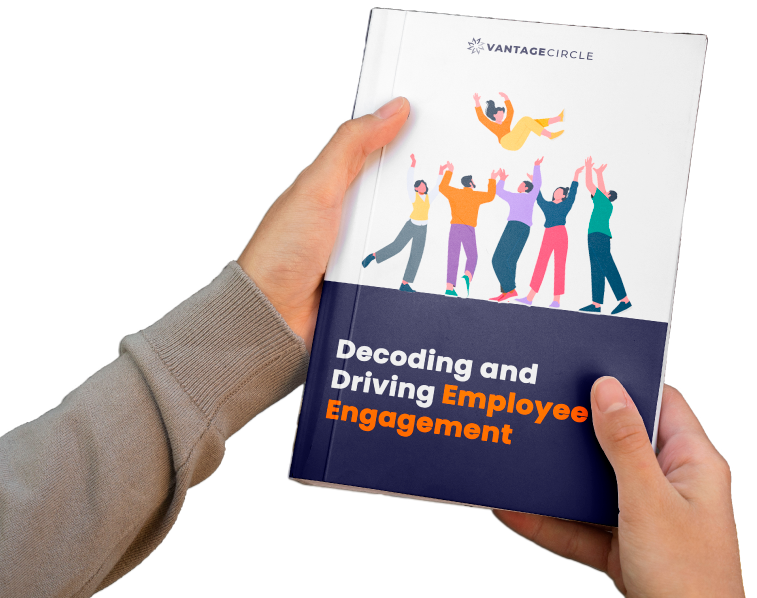Employer-Employee Relationship: Elements, Benefits, and Challenges

A Global Employee Recognition and Wellness Platform
When an employer brings in a new team member, it's not just a recruitment; it's the beginning of a relationship. And building a strong employer-employee relationship isn't just about satisfaction; it's the key to lasting loyalty and happiness.
Key Takeaways
- Meaning of employer-employee relationship.
- Elements to build a strong employee and employer relationship.
- Benefits of an employer-employee relationship.
- Ways to enhance the employer-employee relationship.
- Challenges businesses might face in establishing a good employer-employee relationship.
The degree of closeness in these relationships depends on both the employer and the employee. When some employers choose to follow the line of hierarchy, others opt to create a friendly bond.
This relationship often leads to employee engagement, nurturing strong employee morale, and a vibrant company culture. Another perfect choice would be hiring an employer of record. EOR makes your job extremely easy since it takes care of all aspects of employment compliance. It plays a significant role in the overall success of the businesses.
Elements to Build a Strong Employer-Employee Relationship
1. Mutual Respect
Both the employers and employees should have mutual respect. Signs of disrespect are not just bad for the relationship; they also lead to low retention and bad word of mouth.
2. Knowing Each Other
To start a healthy relationship, it is essential to know the mutual strengths and weaknesses. It allows them to understand each other by discovering similarities and differences.
3. Communicating Freely
Open communication is vital in an employer-employee relationship. It leads them to be on the same page, moving in the same direction toward one common goal.
4. Knowing The Gap
There needs to be a gap between professionals and personal relationships. It is wise to avoid getting too close to employees, as it can cause the gap between employer and employee to become blurred. As a result, it can bring in allegations of favoritism in the workplace.
5. Embracing Recognition
Employers should remember that appreciation and recognition are equally important as criticism.
Take advantage of every opportunity to recognize your employees' efforts, whether it’s a town hall meeting or a spirit week celebration.
6. Understanding What ‘Control’ Means
An employer doesn't necessarily have to exercise their right to control the employees.
The standard law test should work as a balance in maintaining the employer-employee relationship.
Having strong employer and employee relations reaps a lot of benefits for your business. Let's know how.
Benefit of employer-employee relationship
1. Fewer Workplace Disputes
A friendly work environment leads to a reduction in conflicts. Employee's trust gets more robust when they don't argue and work towards a common goal. That, in turn, results in making them productive by avoiding confusion and increasing disharmony.
2. Added On Productivity
Just as mentioned above, a positive relationship with the employer helps the employees generate more revenue through increased productivity. It is because when the work atmosphere is pleasant, motivation is increased, and morale is improved. And when employees feel happy, they are more likely to give their best efforts on the job.
3. Higher Engagement Rate
The organizational relationship is directly related to employee engagement. According to a report by the Society for Human Resource Management, "The majority of employees find the relationship with their employer to be significant to their job satisfaction.”
Thus, a close relationship can make the employees grow and stay for the long term because they feel valued.
4. Higher Retention Rate
Companies that endorse positive relations are more likely to be successful because it helps gain the confidence of their loyal employees who prefer to stick around.
They won't leave the team and organization, saving on recruitment, hiring, and training. To avoid business loss, it is better to invest in creating a strong relationship rather than spending on new searches.
5. Easier Work Assignment
As an employer, you should know your employees' strengths, weaknesses, and the current and potential range of their expertise. It helps in assigning responsibilities and avoiding mix-ups. It enables the employees to stay motivated and complete the given task efficiently.
Some employers also choose to create tasks to overcome weaknesses. When employees uncover new strengths, they feel happy and be themselves at work.
6. Quick Understanding Of Problems
Maintaining a good relationship with employees results in overall free and frank communication in the day-to-day business. Such open conversations assist in being aware of existing business problems and drawbacks, which helps find quick resolutions.
7. Workplace Equality
Most employers fail to serve equality in the workplace. And without a fair and equal environment, employees do not feel important.
As a result, they don't tend to work harder and be productive. By embracing equality for the employees, you can create a sound and efficient workforce vital for any business's success.
8. Earning Employee Advocacy
Employee advocacy is nothing but empowering your employees to promote the brand name of the company.
But why would an employee do that without a sense of oneness and trust towards the company? A solid employer-employee relationship can create a consistent employee advocacy strategy and activate them as promoting assets
Now, if your business stands to gain from any or all of these advantages, it is valuable to invest your efforts in nurturing the bond between you and your team members. Fortunately, there exist several methods to achieve this goal. Let's discuss further.
Ways to enhance employer-employee relationship
To improve the employer-employee relationship, you can:
-
Give Helpful Feedback: Your feedback will help the employees grow to improve and become aware of their strengths and flaws.
-
Offer Learning Opportunities: To demonstrate that you care about your employees' development, offer workshops or courses.
-
Support Work-Life Balance: Ensure employees have personal time out of work. It increases job satisfaction and prevents burnout.
-
Embrace Diversity and Inclusion: Create a welcoming space for all to boost loyalty and company culture.
-
Communicate Clearly: Share business choices openly to foster a sense of value and participation among employees
While employers undoubtedly play a key part here, only a joint effort by both the employer and employees is a must for an advantageous working dynamic. Therefore, it's important to acknowledge that employees have a fair amount of responsibilities.
They can take the following actions to keep their relationship with you at its best:
-
Open Communication: Employees should provide their own comments and suggestions for improvement in addition to receiving constructive criticism.
-
Continuous Learning: Employees must actively look for training opportunities, seminars, and other activities that enrich their work.
-
Team Collaboration: They must actively participate in team projects, thereby creating harmony.
-
Professional Integrity: To win the team's trust, they must preserve ethics, meet deadlines, and deliver quality work.
-
Company Involvement: Getting involved in company events will enrich your employees' sense of belongingness.
Now that we've discussed the responsibilities of both parties, it's essential to recognize the challenges that can affect this dynamic. These challenges, which we'll explore next, can sometimes make it harder to maintain a strong and mutually beneficial connection.
Challenges Businesses Might Face In Establishing A Good Employer-Employee Relationship
1. Remote Work Dynamics
Managing remote teams can be a big challenge due to communication gaps, feelings of isolation, and difficulties in monitoring employee productivity.
2. Changing Work Environments
Rapid changes in work environments, such as transitioning from in-office to remote work or vice versa, can disrupt the employer-employee relationship.
3. Work-Life Balance
Striking a balance between work and personal life can be challenging, especially with the blurring of boundaries caused by technology and remote work.
4. Generational Differences
Bridging generational gaps in the workplace can be a challenge, as different age groups may have varying expectations and communication styles.
5. Mental Health and Well-being
Supporting employee mental health and well-being is increasingly important but can be challenging for employers to address effectively.
Conclusion
Building a connected employer-employee relationship might not be as easy as it seems. But the minute you start investing time in them, you will know that it's the right path to business happiness!

















